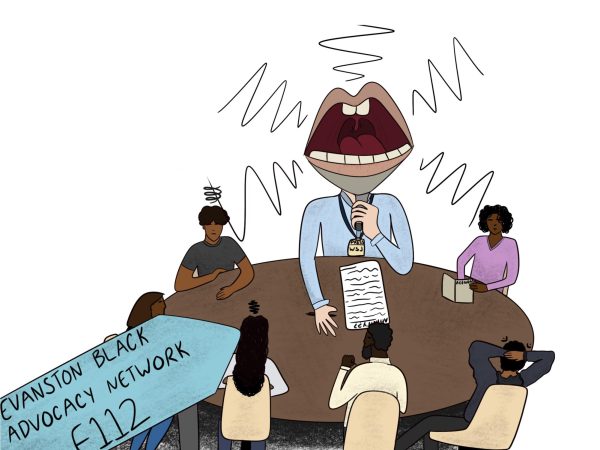Letter to the editor: In response to “Young stars deserve their money”
October 27, 2018
On Friday, Sept. 28, 2018, The Evanstonian published an article claiming “Young Stars Deserve Their Money”. That article had several sections that raised red flags.
Most pressingly, the article refers to Kylie Jenner as a “self-made” billionaire. She is anything but. Her stepfather was a lawyer who made millions and gained fame through the voyeuristic media spectacle of the OJ Simpson trial. One of her parents was a world famous multi-millionaire athlete. Her family has an insipid reality show that spins out a multi-faceted billion dollar empire. She is merely the latest manifestation of a societal obsession with the excesses of wealth and plasticity; an obsession that is the reason she has any personal wealth at all.
Her billion dollars were not attained through hard work, or any sort of deserved effort. To crown her “self-made” is to shame every blue collar worker and every service worker who clocks in the majority of their waking hours in a place without heart for little reward. Under this ideology, they simply haven’t made themselves rich yet. As such, no one is poor by circumstance, chance or intention; they are just lazy and unlucky. Later in this article, the author acknowledges that very comparison, but strikes a morally untenable point: that minimal effort in the entertainment industry is worth billions, while the vast majority of people’s labor means nothing.
The Evanstonian article is so quick to assume that those with large amounts of money are deserving, but it fails to recognize that no fortune has ever been made without exploitation. Jenner’s lip kits are made in unsanitary sweatshops by workers who receive little pay and no benefits. And yet, the lion’s share of these profits do not go to the people investing their lives in making Jenner’s cosmetics, they go to a narcissistic 21 year old.
Similarly, on Sept. 27, Judge Brett Kavanugh said he’d “busted his tail” to get into Yale, where he “had no connections”. A slew of quick-response articles immediately appeared, revealing he was a third generation legacy, whose parents had paid full freight. I was struck dumb at the cognitive dissonance those with money seem to have about how their wealth has affected their circumstances. While the author of the Evanstonian article made no connection to Kavanaugh, the ways in which wealth affects discourse is constant across the Evanstonian article, the Kavanaugh hearing, and the media response to Jenner’s billionaire status. Kavanaugh and Jenner fit in the same category of privilege. They are wealthy people who can not see how their economic standing has created the allowance for more wealth. Many in Evanston do not recognize this either. Living in your own house, with parents with MDs, JDs and PhDs, primes you to achieve higher (in the conventional sense). This is demonstrable fact. Education begets wealth, but it also costs money.
For those living in south and west Evanston, where wealth, housing, and employment are less available, this truth could not be clearer. A wealth gap that is left unacknowledged is one of systemic oppression, along class and racial lines. And yet, Evanston’s entrenched class differences, with clear borders (the river), are rarely acknowledged, and rarer still addressed. Our mayor himself is a millionaire businessman who’s shown little interest in correcting these faults. As such, there is no forthcoming resolution. Jenner will only make more money, Kavanaugh will return to his million dollar house a Supreme Court Justice, and wealthy Evanstonians will drive home on racial borders praising their diversity. Examining wealth as a concept of one’s worth is a sickening game, but it’s one we have to play to correctly analyze the teetering existence of American capitalism. To beat that game, we must follow Eugene Debs and declare opposition to a social order that makes it possible for a person who does absolutely nothing to amass a fortune of hundreds of millions of dollars while millions of men and women who work all the days of their lives secure barely enough for a wretched existence.
The author of The Evanstonian article closes with the claim that multi-millionaire streamers and celebrities are “just like the rest of us, working for their money.” It is a truth so twisted from the realities of the world we live in that it must be treated as a lie. To call trendsetters and branders workers is a lie. The author fails to acknowledge the fact that the industries people work 9-5’s in produce for these branded celebrities, these immobile occupants of television and vapidity. Their labor of branding themselves is seen as somehow more valuable than intellectual thought, or manual creation. Late stage capitalism, faltering in its trust in brands before people, has spit out these manifestations of the American id as ridiculous exercises in its own might, and everywhere these no effort billionaires appear a legion of fans and writers support them. It is deeply troublesome.













